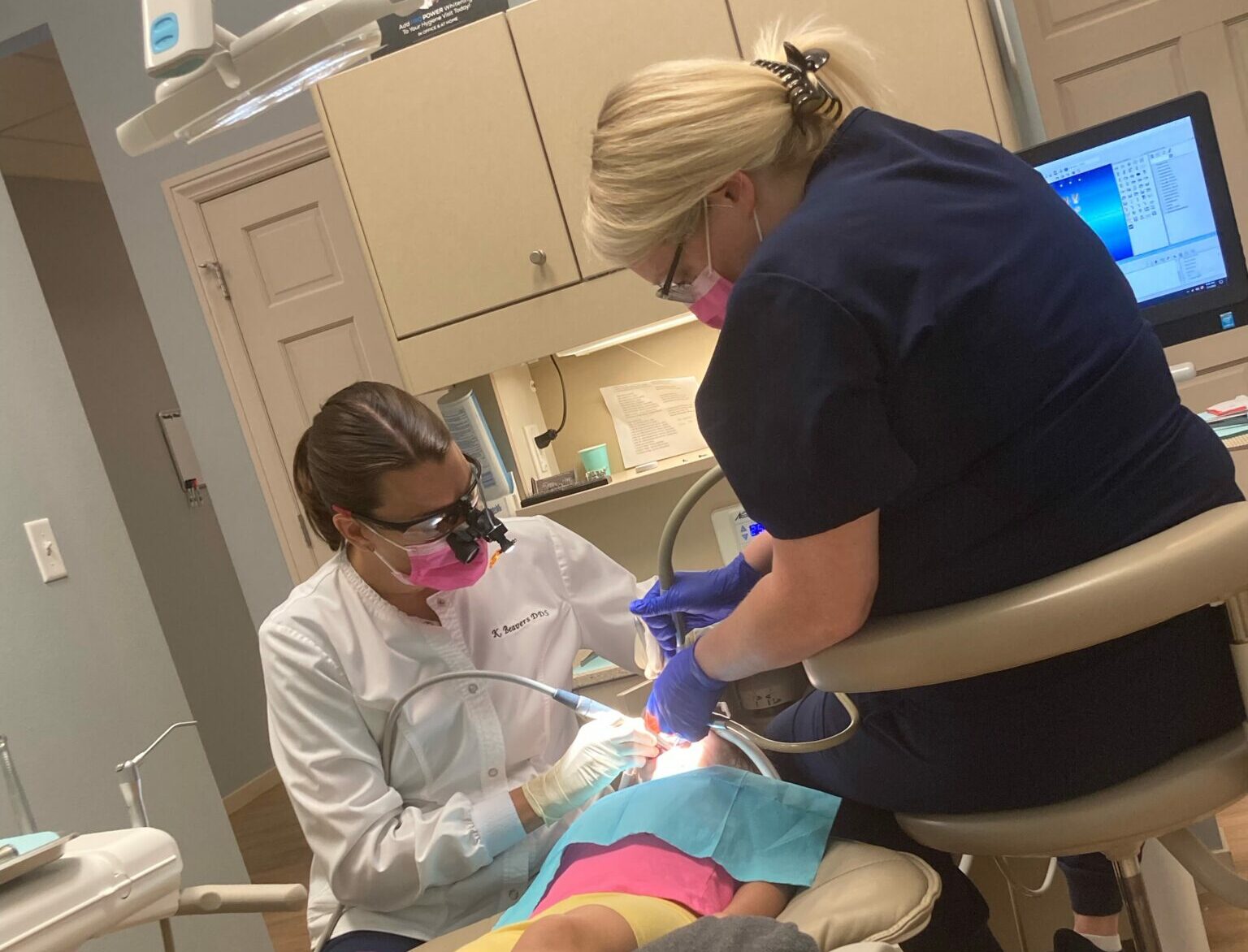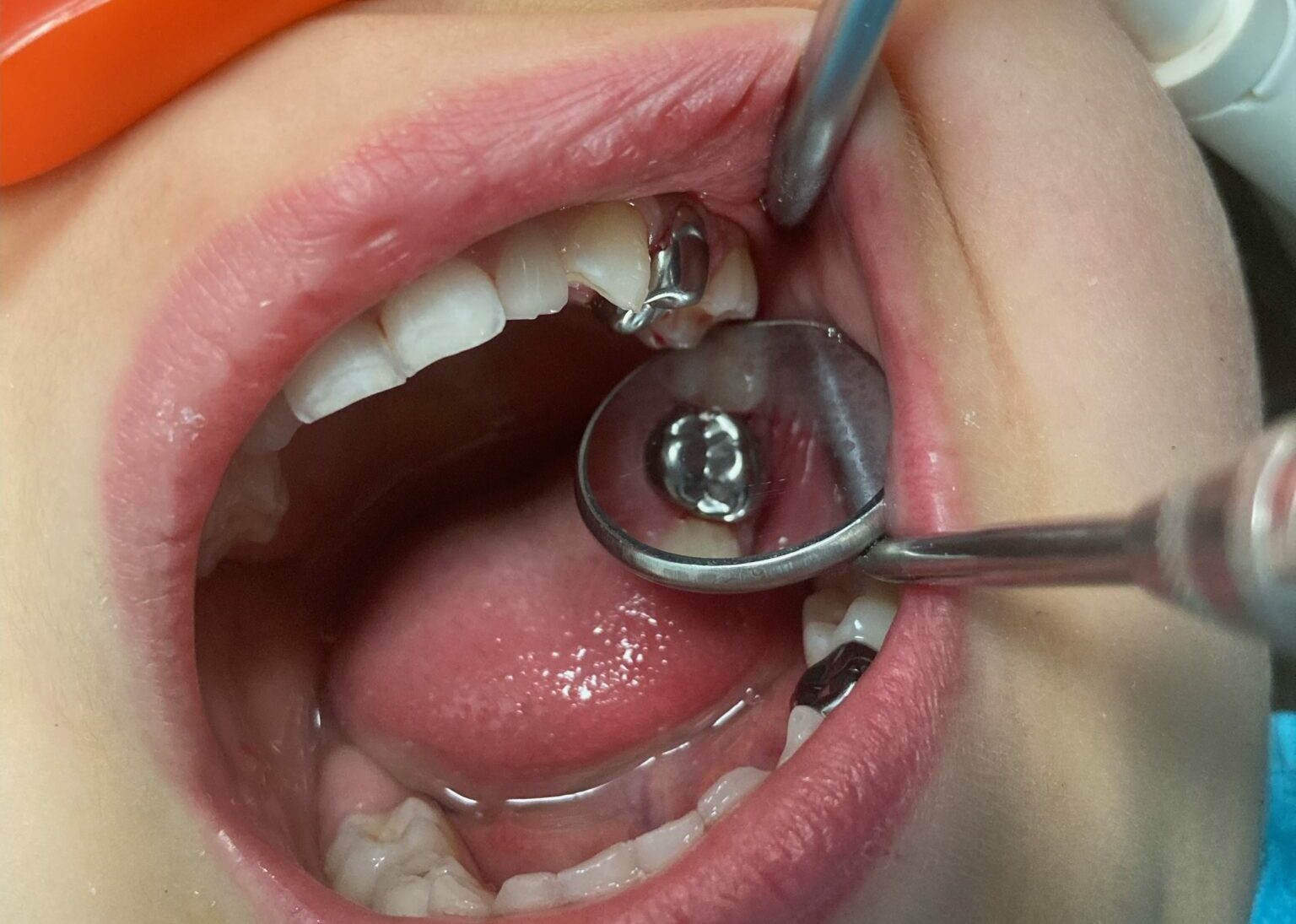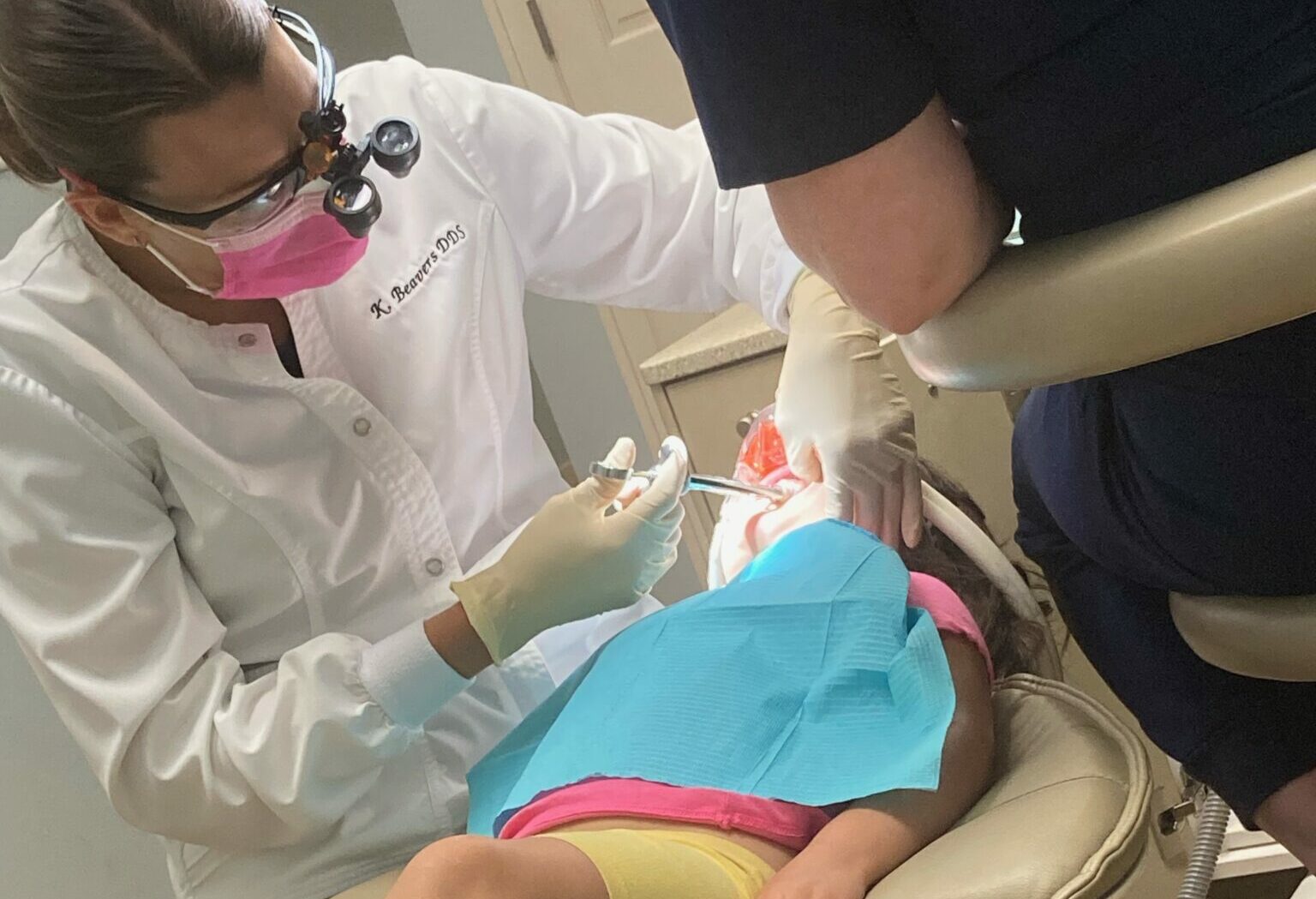Thousands of patients every year get dental crowns, which are tooth-shaped shells that fit over damaged teeth. A dental crown is an alternative to having to pull the tooth and place dental implants.
Some patients experience tooth sensitivity with their crowns. How long is a crown sensitive? Is it normal for a crown to be sensitive?
Beavers & Broomfield Family Dentistry installs crowns on patients weekly, and we know it can take some time to get used to a dental crown. How long will it take? That will depend on several factors. Let’s take a look!

Temporary Crowns vs. Permanent Crowns
A crown is used to repair a tooth damaged by wear, injury, or tooth decay. We don’t like pulling teeth if there is a way to save the tooth, and crowns are a great way to save a tooth.
Should you need a crown, we may start by fitting you for a temporary crown while a customized, permanent crown is made. We start by preparing your damaged tooth for a crown. This may include shaving down some of the enamel so the crown will fit properly over it. We’ll take a digital impression of your tooth so your custom permanent crown can be made.
If necessary, we will fit you with a temporary crown. It will fit your tooth and protect it until your permanent crown is ready. The temporary crown may not fit as well as your permanent one, which may lead to some tooth sensitivity.

Are Crowns Sensitive?
Your temporary crown may leave your teeth sensitive for the first few days for a couple of reasons. First, we have to shave down the enamel so the crown fits and lines up with the rest of your teeth properly. Your enamel protects the dentin and the pulp where your nerves are in your tooth. The thinner your enamel, the more sensitive your tooth.
So you can expect some sensitivity at first. We also have to move your gum tissue away from the tooth so we can slide the crown down underneath your gums, which may irritate them temporarily.
The crown takes the place of the enamel, protecting your tooth. But you may have temporary crown pain because it doesn’t fit as well as the permanent crown and because your mouth isn’t used to having a crown. You may find your crown sensitive to cold or heat at first. Will I ever get used to my new crown? As your mouth becomes used to the crown the discomfort will diminish over time.
Tooth Crown Sensitivity
What kind of tooth sensitivity after a crown can you expect? You may find your crown is sensitive to cold or heat, so you feel pain or discomfort when eating or drinking anything hot or cold. This should fade within a week or two.
You may also feel pain when you bite down on your crown the first couple of days. This may be due to the gums being irritated during the crown placement. As the gums heal, the pain should go away.
If you find your crown uncomfortable the first few days, you can try using over-the-counter pain medication as directed, such as ibuprofen (Advil) or acetaminophen (Tylenol). We also recommend you stick to a soft-food diet for the first few days after getting your temporary crown.

How Long Is a Tooth Sensitive After a Crown?
Many people won’t experience pain or have much tooth sensitivity after a crown. Most of those who do will only have sensitivity for a week or two. It should also feel better once your permanent crown is in place because it fits better to the tooth and will protect it more from heat or cold.
What happens if your crown is sensitive to cold after 2 months? What if your crown hurts when you put pressure on it a month after it was placed? If your tooth pain under the crown comes and goes, we’ll figure it out.
In cases like this, there may be a problem with the crown. It may not have fit properly and may need adjusting, or the crown may have been damaged. These instances are very rare, but they can happen. When they do, you need to talk to your dentist.
Contact Beavers & Broomfield Family Dentistry if you still have sensitivity with your crown after a month or more. We will bring you in as soon as possible and check your crown to ensure it hasn’t moved out of place or been damaged. We can make any adjustments needed to give you a pain-free smile.
What If My Crown Tooth Hurts Years Later?
Though you will get a “permanent” crown, they don’t actually last forever. Porcelain crowns usually last 5-15 years. Metal crowns can last longer, up to 20 years or so.
As they reach the end of their life, you may begin to notice when your crown tooth hurts years later. You may find you have pain in the crown tooth when biting down or discomfort from cold or hot beverages.
It’s time to visit your dentist when your crown stops protecting your tooth properly. We will replace the crown if we can. If the tooth has deteriorated further under the crown, it may not withstand another crown.
In that case, we may recommend another course of treatment, such as dental implants. But if the tooth is still solid, we can simply replace the crown.

Restorative Dentistry in Fayetteville, AR
You don’t have to live with the pain of a damaged tooth. Crowns are a great way to protect and save a damaged tooth, though there is a chance you may experience some tooth sensitivity after your crown is placed. We want to stress that this should be temporary. If it isn’t, contact us and we will work to get you in right away.
The last thing we want is for you to live with tooth pain. If crowns don’t work for you, we have other restorative dentistry options that may work better, including fillings and dental implants. If you’re in Northwest Arkansas, get started by requesting an appointment with Beavers & Broomfield Family Dentistry. We can give you options to save your smile!





